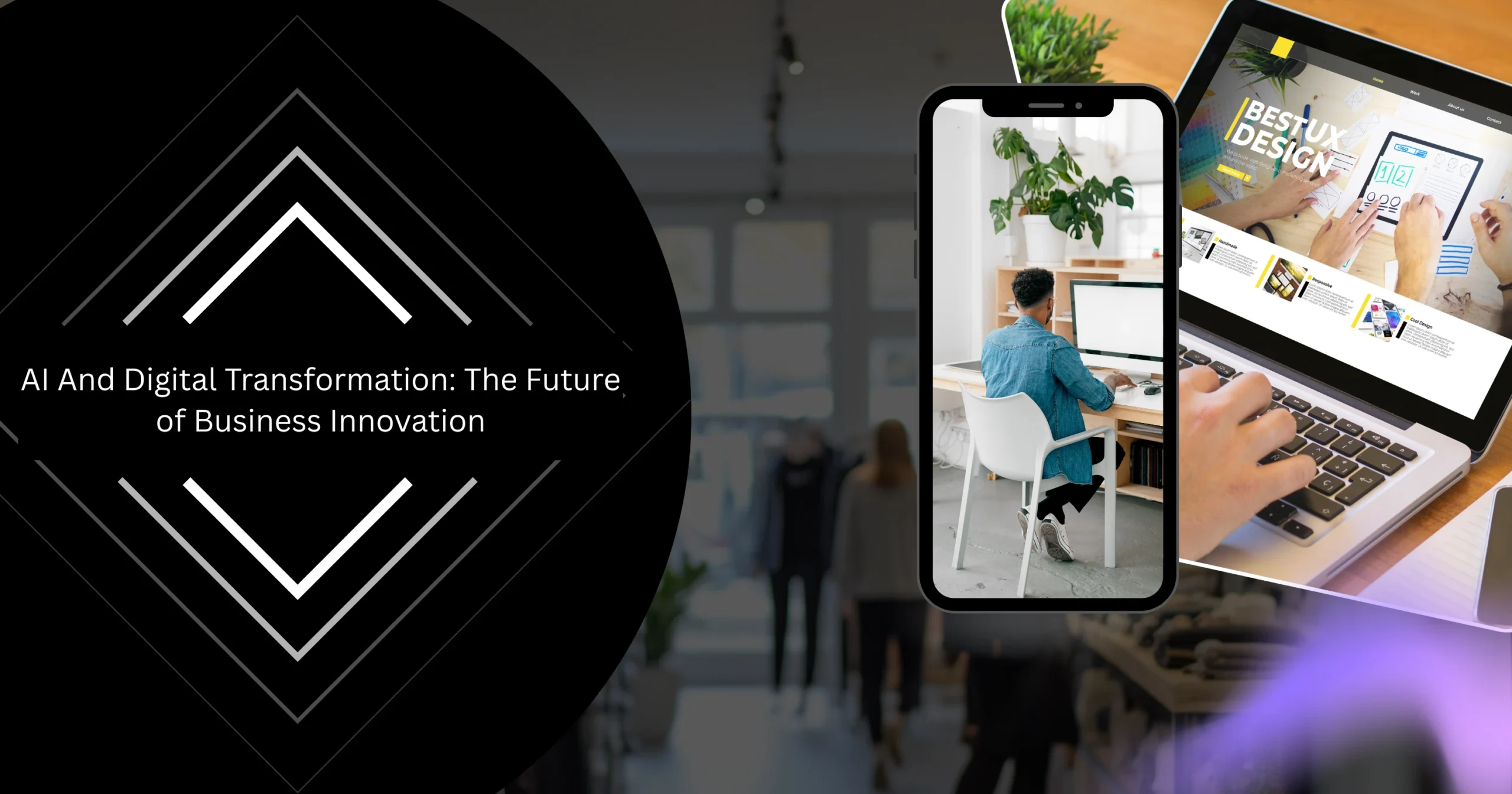In our rapidly changing digital era, businesses must evolve faster than ever to stay ahead. AI and digital transformation aren’t just industry buzzwords; they represent a monumental shift in how organizations operate and scale. By leveraging these technologies, companies do more than just stay in the game—they uncover new and powerful methods to boost efficiency, expand operations, and create innovative business models. With technology moving forward at an incredible pace, AI is at the forefront, driving unmatched opportunities for lasting growth and a strong competitive advantage.
Understanding the Impact of AI and Digital Transformation
AI and digital transformation represent a major shift, not just an upgrade. In the past, businesses wondered if they should invest in AI. Now, the question is how to do it effectively. The key focus areas include automating workflows, improving decision-making, and enhancing the customer experience. These elements are crucial to any company aiming to succeed in a rapidly changing digital environment.
At the heart of this change is a strong digitalization model. This model serves as a roadmap, guiding businesses on which technologies and strategies will best fit their needs. Understanding how digitalization affects your business is essential. A well-structured digitalization model helps companies make this transition smoother, reducing disruptions and maximizing efficiency.

The Role of AI in Leading Digital Transformation
AI is a powerful catalyst, breaking barriers and creating limitless opportunities. Businesses that use AI well can gain significant advantages. Here’s how AI can empower your company and help it stay ahead:
- Better Data Analysis: One of AI’s most impressive features is its ability to process large amounts of data quickly and efficiently. It can extract valuable insights, helping leaders make informed decisions. This goes beyond simple reporting—AI can predict future trends, analyze customer behavior, and identify areas where operations can be improved. With AI, businesses no longer have to rely on guesswork. Instead, they can build strategies backed by solid data.
- Automation and Efficiency: Many tasks in a company are repetitive and time-consuming. AI can automate these processes, freeing up employees to focus on more meaningful work. For example, routine tasks like data entry, customer support, and inventory management can be handled efficiently by AI. This automation doesn’t just save time—it also boosts overall productivity. Companies can become leaner, more agile, and better positioned to meet customer demands.
- Personalized Customer Experiences: Today’s customers expect personalized experiences. AI can deliver just that. By analyzing customer data, AI can help businesses offer tailored marketing campaigns, customized product recommendations, and better customer support. When companies understand their customers on a deeper level, they can provide the right products and services at the right time, significantly improving customer satisfaction.
- Risk Management and Security: As businesses go digital, the risk of cyberattacks and data breaches also increases. AI plays a crucial role in protecting sensitive information. AI-driven cybersecurity solutions can identify threats and respond to them quickly, often before they cause damage. By continuously monitoring for unusual activity, AI helps companies safeguard their data and maintain the trust of their customers.
Companies that are leading digital transformation understand that AI isn’t just a tool; it’s a strategic asset. By using AI effectively, these companies can stay ahead of their competitors, adapt quickly to changes, and even set new industry standards.

Building a Strong Digitalization Model
The success of any digital transformation effort depends heavily on having a well-thought-out digitalization model. This model outlines the technologies, processes, and strategies needed to achieve transformation goals. Here’s what a strong digitalization framework should include:
- Assessment of Current Capabilities: Before you dive into digital transformation, it’s essential to understand where your company stands. Evaluate your current infrastructure and processes to identify gaps and areas that need improvement. This step ensures you know what to focus on and helps you avoid wasting resources on unnecessary changes.
- Strategic Alignment: Your digital transformation strategy should align with your overall business objectives. When your digital initiatives match your business goals, they deliver more value. For example, if your goal is to improve customer service, your digital strategy should include AI solutions that enhance the customer experience. Aligning your efforts ensures you get the best return on your investment.
- Technology Adoption: Choosing the right technology is crucial. Invest in AI tools that are scalable, secure, and customizable. These tools should be flexible enough to grow with your business and adaptable to meet your changing needs. The right technology can streamline operations, improve productivity, and support long-term success.
- Employee Training and Buy-In: Digital transformation isn’t just about adopting new technology—it’s also about getting people on board. Train your employees and ensure they understand the benefits of these changes. When your workforce is skilled and motivated, the transition is much smoother. It’s also important to involve key stakeholders early on to gain their support and buy-in.
- Continuous Monitoring and Optimization: Digital transformation is not a one-time project; it’s an ongoing process. You should regularly review your progress and performance metrics. If something isn’t working as expected, be prepared to adjust your strategy. Continuous monitoring ensures that your digital initiatives remain effective and aligned with your business goals.

Embracing Digital Transformation and Innovation
Companies that are thriving in today’s digital landscape are the ones that invest in digital transformation and innovation. Innovation drives growth, and staying innovative is now a necessity, not an option. Here’s why innovation is so crucial:
- Staying Competitive: In a rapidly changing market, companies that innovate are more likely to succeed. They can quickly adapt to new trends, meet evolving customer needs, and take advantage of emerging opportunities. Businesses that don’t innovate risk falling behind.
- Agile Operations: Innovation leads to greater agility. Companies can quickly pivot, launch new products or services, and respond to market demands more effectively. This flexibility can be a game-changer, allowing businesses to stay relevant and competitive.
- Data-Driven Decisions: With AI-driven innovation, businesses can make smarter, data-based decisions. For instance, AI can provide real-time insights into market trends, customer preferences, and operational efficiency. Having access to this level of information can be the difference between success and failure.
Leading digital transformation requires a proactive approach. Businesses shouldn’t wait for disruptions to force change—they should be the ones driving the change. By embracing innovation and using AI strategically, companies can lead the way in their industries.

Challenges in AI and Digital Transformation
While AI and digital transformation offer many benefits, there are also challenges to consider:
- Data Privacy and Security Concerns: With more data being collected and processed, protecting sensitive information becomes critical. Businesses must comply with data privacy laws and use robust security measures to prevent breaches. This is an ongoing challenge that requires constant attention and adaptation.
- Integration Complexities: Introducing AI and digital solutions often means integrating them with existing systems, which can be complicated and expensive. Legacy systems may not be compatible with new technologies, requiring significant investment and time to update.
- Skill Gaps: There’s a growing demand for professionals skilled in AI and digital technologies, but the talent pool is limited. Companies may struggle to find the right people to lead their digital initiatives. Investing in employee training and development is essential to bridge this gap and keep projects moving forward.

Despite these challenges, they can be overcome with a clear vision, a strong digitalization model, and effective leadership. Businesses that are committed to their digital transformation journey will be well-positioned to benefit in the long run.
The Future of AI and Digital Transformation
Technology is constantly evolving, and the future will bring even more opportunities for businesses to grow and innovate. AI will continue to transform industries, making operations more efficient and helping companies deliver greater value to their customers. Those that are quick to adopt and adapt will thrive in this ever-changing environment.
AI and digital transformation are not passing trends—they are here to stay. Companies must prepare for the future by investing in AI, developing robust digital strategies, and prioritizing continuous innovation. The secret to success lies in being adaptable and forward-thinking. Businesses that embrace change now will be the leaders of tomorrow.
As we move into an increasingly digital future, embracing AI and digital transformation is more critical than ever. Technology continues to evolve, offering endless opportunities for growth, innovation, and resilience. By taking a proactive approach and investing in AI-driven strategies, your business can lead the charge in today’s competitive market. At TechVedhas, we’re dedicated to helping companies unlock the full potential of digital transformation.
Don’t wait to start your journey! Reach out to us here to discover how we can support your digital transformation goals. Explore our LinkedIn page to stay updated on industry insights, trends, and innovations. If you’re looking for customized solutions or want to know more about our services, visit our web development and AI solutions pages to see how we can help your business grow.
The future is now. Let’s build it together with AI and digital transformation!





